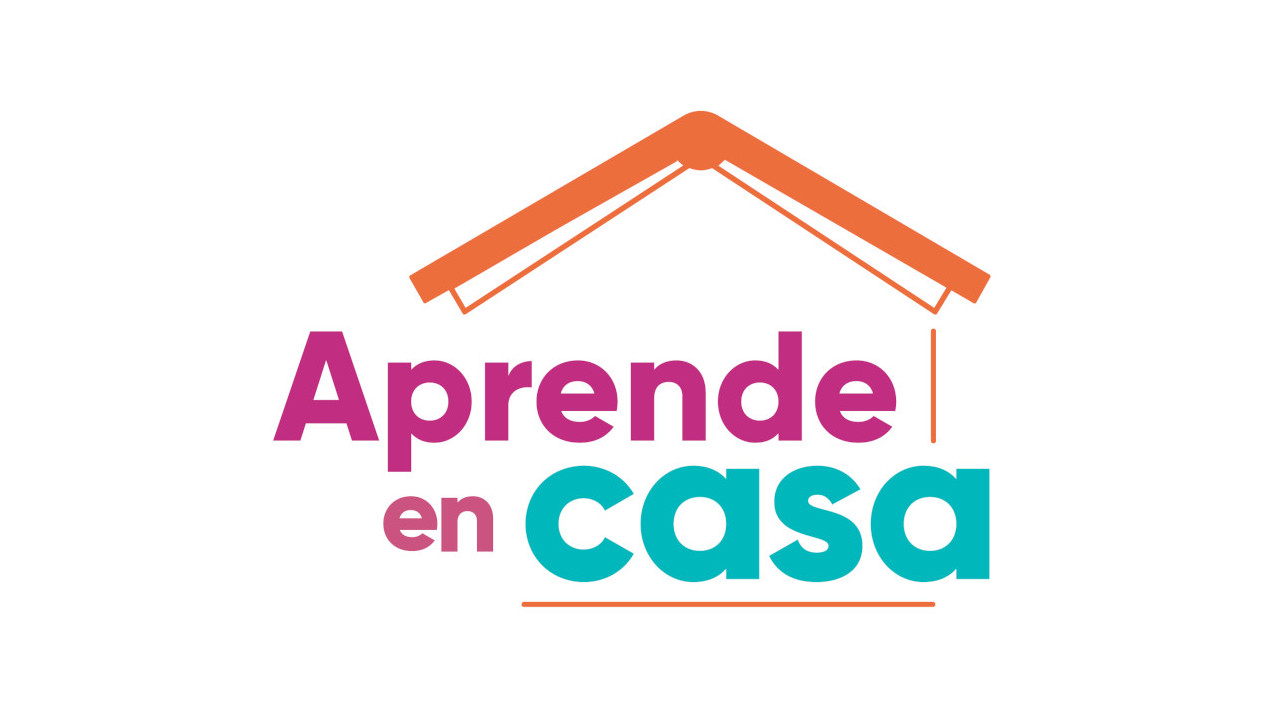Ayudemos a Pedro
Valoración de la comunidad:
Última Actualización:
6 de Febrero de 2025 a las 15:13Aprendizaje esperado: participa en la formulación de preguntas.
Énfasis: formula preguntas sobre objetos del aula.
¿Qué vamos a aprender?
Formularás preguntas sobre objetos que puedes encontrar en un aula de clases.
¿Qué hacemos?
|
Hello, students. How are you today? |
Hola, estudiantes, ¿Cómo están hoy?
|
|
I am so happy to be here with you again. |
Estoy muy contenta de estar aquí con ustedes otra vez.
|
|
Es momento de comenzar nuestra clase con un calentamiento.
|
|
|
|
|
As you can see, here I have some pictures of Teddy Bear and they are in different colors. It is because we are reviewing what we learned last class and it involves color. |
Como puedes ver, aquí tengo unos dibujos de Teddy bear y son de diferentes colores. Es porque vas a repasar lo que viste la clase pasada y esto involucra los colores.
|
|
I have these images of school objects you already know. We will ask what color this object is and point out the Teddy Bear that belongs to that color.
|
Tengo estas imágenes de útiles escolares que tú ya conoces. Voy a preguntarte de qué color son estos objetos y señalarás el Teddy Bear que corresponda a ese color.
|
|
Do you remember how we ask about the color of an object? |
¿Te acuerdas cómo preguntamos por el color de un objeto?
|
|
The question is: “What color is it?” if it’s just one object, and “What color are they?” If they are many objects. |
La pregunta es “¿De qué color es?” si es solo un objeto, y “¿De qué color son?” si son varios objetos.
|
|
Shall we start? |
¿Comenzamos?
|
|
And what color is the netebook? |
¿Y de qué color es el cuaderno?
|
|
|
|
|
It is red. |
Es roja.
|
|
Can you point out the red Teddy Bear? |
¿Puedes señalar el Teddy Bear rojo?
|
|
And what color is the pencil? |
¿Y de qué color es la lapicera?
|
|
|
|
|
It is green |
Es verde.
|
|
So, I point to the green Teddy Bear. |
Así que señala el Teddy Bear verde. One more.
|
|
And what color are the colors? |
¿Y de color son los colores?
|
|
|
|
|
They are of many colors, so I point out all the Teddy Bears. |
Son de muchos colores así que señalo a todos los Teddy Bears. |
Realiza la siguiente actividad:
-
Ayuda a Pedro a plantear la pregunta correcta respecto a los objetos que veas.
|
Pedro is in the living room watching the English class of Aprende en Casa III, but his school objects are on the floor. |
Pedro está en la sala viendo la clase de inglés de Aprende en Casa III, pero sus objetos escolares están en el piso.
|
|
|
|
|
What about helping him to group the objects? |
¿Qué te parece si ayudas a Pedro a agrupar los objetos?
|
|
That way he can know how many school objects he has. |
Así él puede saber cuántos objetos escolares tiene.
|
|
We will ask the number of the objects he has. Do you know how we ask that? |
Preguntaremos cuántos objetos tiene ¿Te acuerdas cómo preguntar eso?
|
|
We use “How many objects are there”. |
Sí, usamos “how many…”
|
|
Exactly. Read the question and circle the number of objects we have. |
Exactamente. Lee la pregunta y encierra en un círculo, el número de objetos que hay.
|
|
The question is: How many books are there? |
La pregunta es, ¿Cuántos libros hay? |
|
Can you count them for me, please? |
¿Los podrías contar por favor?
|
|
|
|
-
La siguiente actividad consiste en completar los patrones que estén incompletos.
|
Do you remember what a pattern is? |
¿Recuerdas qué es un patrón?
|
|
It is when you put objects, numbers, or words that follow a specific order, like a model you can repeat a lot of times.
|
Es cuando ordenas objetos, número o palabras en un orden específico, como un modelo que puedes repetir muchas veces.
|
|
Can you give an example? |
¿Puedes poner un ejemplo?
|
|
For example: apple- apple- orange. Apple-apple-orange. |
Por ejemplo: manzana-manzana-naranja. Manzana-manzana-naranja.
|
|
Yellow-green-yellow. Yellow-green-yellow. |
Amaríllo- verde- amarillo, amaríllo- verde- amarillo.
|
|
Great! Now we will guess what object completes the following patterns. |
Ahora vamos a adivinar qué objeto es el siguiente en los siguientes patrones.
|
|
What is the pattern? |
¿Cuál es el patrón?
|
|
The pattern is one red Teddy Bear, a red number eight, and another red Teddy bear. |
El patrón es un oso de peluche rojo, un número ocho rojos y otro de peluche rojo.
|
|
And what object would f follow the pattern?
|
¿Qué objeto continuaría el patrón? |
|
It would be another red number eight
|
Seria otro número rojo. |
|
Let’ s see the next pattern. |
Veamos el siguiente patrón.
|
|
It is one school bag, then two school bags and another school bag. |
Es una mochila, luego dos mochilas y otra mochila sola.
|
|
To follow the pattern, we need to put another school bag. |
Para seguir el patrón, necesitamos una mochila más.
|
|
The next pattern begins with number seven, then number five and finally number seven again. To follow the pattern, we would put number five again.
|
El siguiente patrón comienza con el número siete, luego el número cinco y finalmente el número siete nuevamente. Para seguir el patrón volveríamos a poner el número cinco. |
-
Revisaras las palabras interrogativas.
|
Let’ s review the Wh questions. Do you remember them. |
Vamos a revisar las palabras interrogativas, ¿Las recuerdas?
|
|
What, where, who, when, how many. |
Qué, dónde, quién, cuándo, cuántos o cuántas.
|
|
Here, we have some questions or sentences and you are going to underline only the correct answer. |
Aquí tenemos algunas preguntas u oraciones y tú vas a subrayar sólo la respuesta correcta.
|
|
The question is: What color is it? |
La pregunta es, ¿De qué color es?
|
|
|
|
|
And the possible answers are: yellow or nine. |
Y las posibles respuestas son: amarillo o nueve.
|
|
Nine is a color? |
¿Nueve es un color?
|
|
Yellow is a color, so we underline yellow, please. |
El amarillo es un color; por lo tanto, subrayamos amarillo.
|
|
Next question: How many rulers are there? |
La siguiente pregunta, ¿Cuántas reglas hay?
|
|
|
|
|
And the possible answers are: ruler or five. |
Y las posibles respuestas son: regla o cinco.
|
|
Ruler is a number? |
¿Regla es un número?
|
|
If the question is how many, then the answer is a number. It would be: five. |
Si la pregunta es cuántas, entonces la respuesta es un número. Sería cinco.
|
|
Last question |
Última pregunta.
|
|
What is it? |
¿Qué es?
|
|
|
|
|
Possible answers are: red or notebook. |
Las posibles respuestas son: rojo o cuaderno.
|
|
The correct answer is notebook. |
La respuesta correcta es “cuaderno”.
|
|
Very good! If the question begins with “what”, then the answer would be an object. |
¡Muy bien! Si la pregunta empieza con “qué”, entonces la respuesta será un objeto.
|
|
Now that you finished this activity about identifying the correct answers, it’s time to play with them. |
Ahora que ya has realizado este ejercicio de identificar la respuesta correcta, es momento de jugar con ellas.
|
-
Con ayuda de los dados identificarás preguntas.
|
We have this dice here. On every side, we can read a question. |
Aquí tenemos este dado. En cada cara podemos leer una pregunta.
|
|
|
|
|
You are going to toss the dice and look for the answer here.
|
Tiraremos el dado y buscaremos la respuesta entre las que tenemos aquí.
|
|
You can also make your own dice. Just follow these steps. |
Tú también puedes hacer tú propio dado. Sólo sigue estos pasos. |
|
Draw your dice on a sheet of paper.
|
Dibuja tu dado en una hoja de papel.
|
|
|
|
|
Write the questions or make the drawings.
|
Escribe tus preguntas o realiza tus dibujos. |
|
|
|
|
With the help of an adult, cut out the edges.
|
Con la ayuda de una persona adulta, corta las orillas.
|
|
|
|
|
Paste the corners.
|
Pega las esquinas.
|
|
|
|
|
Enjoy playing! |
¡Disfruta jugando! |
|
Let’ s make a quick review about what we learned in this lesson. |
Hagamos un repaso rápido de lo que vimos este día.
|
|
You learned how we can ask questions about school objects. |
Aprendiste cómo puedes hacer preguntas acerca de útiles escolares.
|
|
You reviewed the objects you already know and learned new things about them.
|
Revisaste los objetos que ya conocías y aprendiste cosas nuevas sobre ellos.
|
|
Don’ t forget to share what you learned with your teacher and family. |
No olvides compartir lo que aprendiste con tu maestra o maestro y con tu familia.
|
Si te es posible consulta otros libros y comenta el tema de hoy con tu familia.
¡Buen trabajo!
Gracias por tu esfuerzo.


































Login to join the discussion